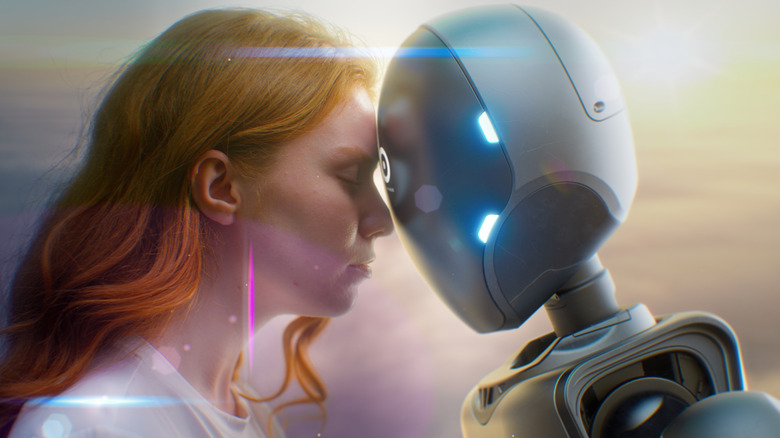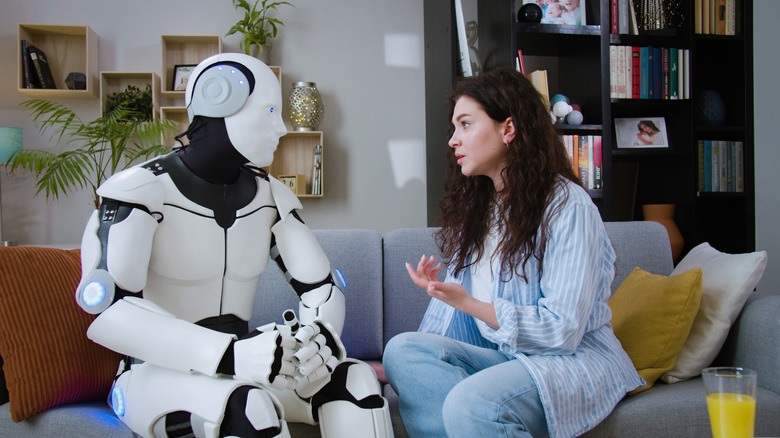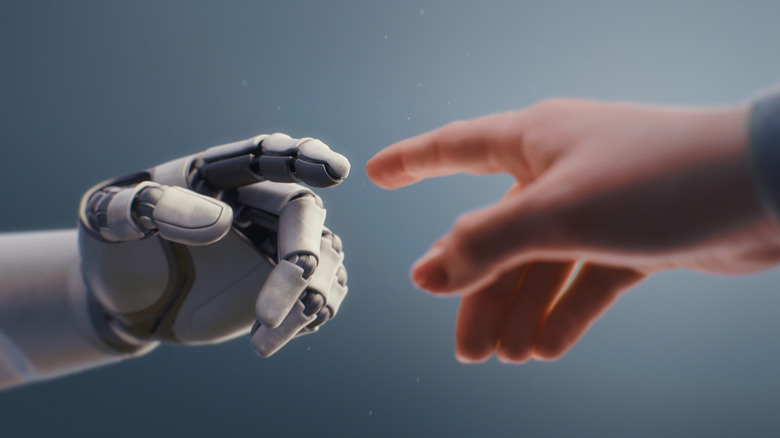Can You Legally Marry An AI?
Believe it or not, these are the times we live in. The Joaquin Phoenix movie "Her," about a man who falls for his AI assistant, shocked viewers way back in 2013. But today, over a decade later, the idea of humans growing closer to AI is more widespread. That's especially true as AI becomes smarter, more contextually aware, able to participate in natural-language conversations, and dare I say, more humanlike.
Check news headlines from one day to the next, and you're bound to find one about someone wanting to marry something that isn't another human, including AI. It's downright bizarre, but it leads to a question people might be wondering — is it actually legal to marry an AI?
The short answer is no. While we have made strides beyond the traditional concept of marriage, allowing a human person to marry a virtual presence that's just a complex series of code is not something that's approved in the U.S.
An Ohio bill could set a precedent
A marriage in the U.S. must take place between two consenting humans. Since AI is not human, a marriage to one cannot be legal. However, to ensure this remains the case, Representative Thaddeus Claggett, who serves as the chair of the House Technology and Innovation Committee, as well as a Republican from Licking County, Ohio, has introduced House Bill 469. Its purpose is to ensure that AI entities can never be considered legal persons. Thus, a legally binding marriage to one can never enter the conversation.
According to the bill, AI systems would be declared "nonsentient entities," which, of course, they are. Thus, they would be banned from doing things that legal persons can, including entering into legal marriages. Legislation passed in Utah in 2024 addresses the legal personhood of AI, while a similar bill was presented in Missouri in the following year.
In an interview with NBC4, Claggett says it's important that AI systems are never declared "human in their agency," despite the reality that AI entities are increasingly capable of behaving like actual humans. Guardrails are needed, he says, so that "we always have a human in charge of the technology, not the other way around."
It's more important than you think
Preventing a human from marrying an AI is about a lot more than it seems on the surface. When someone is legally married, their spouse has power of attorney and can make financial and medical decisions on their behalf. It's easy to see how granting such powers to an AI could be problematic. Further, humans have rights that AI don't, like being able to own real estate, bank accounts, and intellectual property. In permitting a human to marry an AI, that entity could effectively declare such rights.
It sounds like a pie-in-the-sky idea, but it isn't. There are many stories of people who claim to have formed emotional, even romantic, connections with chatbots and other AI. Several people have entered into symbolic unions with AI, and that's their prerogative. But these are not legal unions, and the proposed Ohio legislation could set a precedent to ensure that they are never deemed as such.


